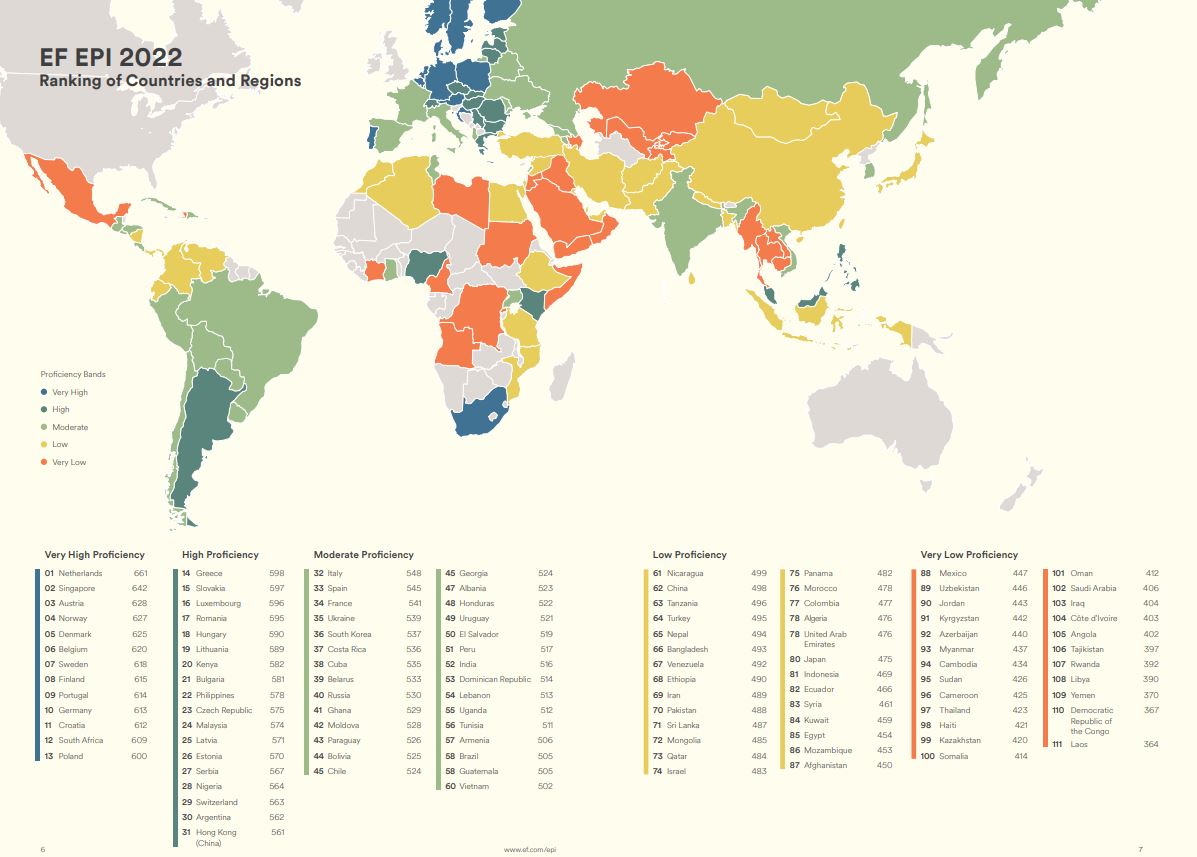Singapore Is Most Proficient In English Among Asian Countries: EF English Proficiency Index 2022
Back in 1965 when Singapore gained independence, the Government made the sage decision to retain English as the main language of the nation.
The decision improved subsequent generations’ grasp of the language, thus accelerating the nation’s integration into the global economy.
In a recent study, Singapore emerged as the most English-proficient nation in Asia, surpassing Malaysia and the Philippines.

Globally, Singapore is the 2nd-most proficient non-native-speaking nation, just behind the Netherlands.
Singapore 2nd globally in English proficiency, just behind the Netherlands
The EF English Proficiency Index (EPI) 2022 analysed the results of 2.1 million adults who took the EF SET English Test (SET) in the preceding year. The EF SET is reportedly designed for non-native English speakers.
The listing categories countries into five bands according to their scores:
- Very High Proficiency
- High Proficiency
- Moderate Proficiency
- Low Proficiency
- Very Low Proficiency
Perhaps unsurprisingly, Singapore fell under the ‘Very High Proficiency’ category and is the only Asian country in the bracket.
Here’s a comprehensive view of the rankings:

Source: EF English Proficiency Index
Singapore is most English-proficient country in Asia
According to the rankings, Singapore is by far the most English-proficient country in Asia, with a lead of about 64 points.
This is the highest rank that Singapore has achieved since 2012.

Source: EF English Proficiency Index
Coming in second and third are the Philippines and Malaysia, who ranked 22nd and 24th in the world respectively.
Here are the Asian rankings in full:

Source: EF English Proficiency Index
One interesting phenomenon observed in the Asian results is the levels of proficiency between age groups.
In some countries like China, Indonesia, and Japan, young adults appear to have “particularly low levels of English” in comparison to their counterparts over 30 years old.
Test results of 2.1 million people across 111 countries & regions
The results of the EP EPI 2022 came from the EF SET 2021 scores of 2.1 million people from across 111 countries and regions.
However, the organisation conceded that there may be certain inherent limitations and biases in the findings.
For one, the sample of test takers is skewed towards younger adults and those who are keen to pursue the language.
Nonetheless, EF said that the proportion of male and female respondents remained “roughly balanced” and is a good representation of adult language learners across a broad range of age groups.
Another factor is the online administration of the EF SET.
EF said that this characteristic would naturally “pull scores upwards” by excluding “poorer and less educated” individuals.
The full EF EPI report is available here.
Have news you must share? Get in touch with us via email at news@mustsharenews.com.
Featured image by MS News.








